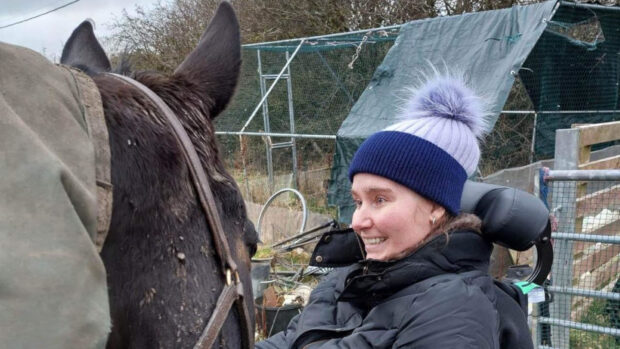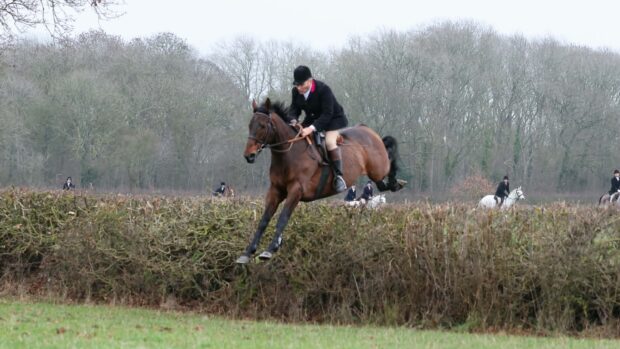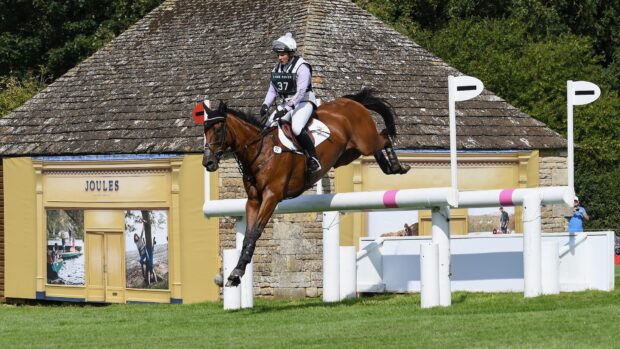Retraining former racehorses can be challenging, but also extremely rewarding if you can form a bond with an intelligent thoroughbred and re-educate him for a successful second career.
British Olympic eventing medallist Tina Cook has a strong family background in racing and has taken on the task of retraining racehorses many times, turning them into successful event horses. In a masterclass at Wellington Riding in February 2023, she talked about some of the secrets of success when working with these horses.
Top tips for retraining racehorses
1. Don’t forget you are dealing with a past history
Ex-racehorses who haven’t been successful in their first careers may have been to the races and not had a very nice time because they were being asked to do something they weren’t very good at and didn’t understand, says Tina.
“If that was you, would you trust humans and what they’re asking you to do?” she asks. “Ex-racehorses can be misinterpreted as being nappy or stupid, but people have to be realistic about what they have done before. Give them belief that they can do it.”
2. Don’t make a big deal out of small things
If a horse whips round, they’ll probably whip round faster or perhaps rear up if you make a big deal out of it, says Tina. It is better to stay quiet in your riding and the correction you give the horse.
3. Re-start the jumping education
“I don’t care if a horse has run in a bumper or in the Grand National, we start their jumping education by walking over one pole,” says Tina, adding that horses who have raced over fences learn to jump looking up, not down at the obstacles, so they need to learn to look, assess the jumps and tackle them in a different way to be an event horse.
4. Take the outings slowly
Again, remember that the horse may not have good memories of going out in a lorry if he didn’t enjoy his racecourse experiences.
“Don’t just take him straight to a show and wonder why he’s coming off the lorry wild and shaking, with sweat pouring off him,” says Tina, explaining she would start off by taking a horse out for quiet schooling outings rather than going straight to a competition.
5. An older horse can still be retrained and be successful
Tina cites the example of Harbinger, a horse she took on as an eight-year-old and she retrained to win the British intermediate championships at Gatcombe Horse Trials two years later and compete at Burghley.
You might also be interested in:
The former European champion on taking her time, ex-racehorses and why horses trip

16 pearls of wisdom from top British rider Tina Cook

‘We took our own ditch to Pratoni’ – how Jonelle and Tim Price prepared for the World Championships

‘You can self coach’ – how to improve your riding without lots of lessons

Nine secrets of successful cross-country from Tim and Jonelle Price

Subscribe to Horse & Hound magazine today – and enjoy unlimited website access all year round
Horse & Hound magazine, out every Thursday, is packed with all the latest news and reports, as well as interviews, specials, nostalgia, vet and training advice. Find how you can enjoy the magazine delivered to your door every week, plus options to upgrade your subscription to access our online service that brings you breaking news and reports as well as other benefits.




